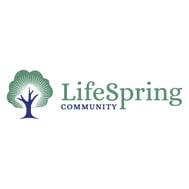Tools that are designed to help offset the costs of care.
Caring for our older or disabled loved ones sometimes requires financial juggling, especially when emergencies occur. The good news is that there are a number of programs available at the local, state, and national levels to help with medical bills and daily expenses and ensure that those who we care for most are well provided for. Take a look at these three tools that are designed to help offset the costs of care.
Medicare for Those 65 and Older
The government offers this health insurance plan that comes with several options depending on your wellness needs. Costs for each plan vary and may include premiums, deductibles, and copayments. The benefits of each type of Medicare are outlined below.
Also known as "Original Medicare", this provides coverage for short-term hospital care, nursing home care of 100 days or less, home health care, and services such as lab tests, medical equipment, ambulances, mental healthcare, and prosthetics. You can also get a one-time prevention exam and a yearly wellness exam under Original Medicare. Services not covered include hearing aids, foot care, dentures and dental care, and holistic healthcare such as acupuncture.
Original Medicare allows you to seek treatment from a wide selection of doctors, nursing facilities, outpatient care centers, and hospitals. You can find out more about its coverage for leading chronic disease here, and take a look at the wide selection of preventative care services here.
Original Medicare (Parts A and B) with MediGap
This allows you to choose from 11 different insurance options that each cover specific "gaps" in Medicare Parts A and B coverage. Some of these gaps include longer length hospital stays and coverage of copayments and deductibles so that you can avoid out-of-pocket expenses during emergencies.
This is also known as Medicare Advantage. Unlike Original Medicare (Parts A and B) it gives you access to private insurers and In-Network providers. It also offers more flexibility in which benefits you choose, such as access to prescription drug coverage.
This is exclusively for prescription drug coverage. It's often used to supplement Original Medicare, which does not cover prescriptions.
Bill Assistance Services
There are a number of bill assistance programs available to Georgia residents to help your loved one pay for food, medicine, heating bills, health care, water bills, home repairs, and medical equipment.
Heating Bills: Utility companies, government agencies, and charitable organizations are all involved in programs that help offset gas and electric bill costs in the state. You can click here to find out more.
Georgia Lifeline Telephone Assistance Program: Customers can get assistance with one residential phone line per household, with discounts varying by carrier. There's also an option to get a small credit applied towards broadband service. You can find out more by calling your local phone company or contact the Georgia Public Service Commission at 1-800-282-5813. Lifeline carrier discount information is available here.
Medical Equipment: The Assistive Technology Act provides funds in all states to help with equipment costs for items such as wheelchairs, scooters, lifts, communication assistance devices, sensory aids, and walkers. Georgia's program is administered by Tools for Life. You can take a look at their nonprofit loan programs, gently used free or discount equipment, and donation organizations here. To read a full description of equipment available under this act, click here.
Georgia Protection and Advocacy Organization: Rather than providing medical equipment assistance, this organization provides free legal assistance for disabled individuals whose medical equipment claims have been denied. They have been successful in overturning denied claims for assistive technology and durable medical equipment. Click here to learn more.
Georgia Weatherization Assistance Program: Low-cost energy saving home improvements such as insulation and weather stripping are available to certain residents who meet the program criteria. Qualifying income guidelines and a link to the application can be found here.
Georgia Food Banks and Pantries: You can find a list of free and low-priced grocery, food, and meal programs in your county by clicking here.
Georgia County-by-County Assistance Programs: Depending on where you live, you can find a number of private, nonprofit, and community action agencies that help with food, rent, medical expenses, discounted health insurance, medical equipment costs, prescriptions, and dental care assistance. You can click here and then scroll to the heading entitled 'Assistance from Georgia Cities and Counties' to find programs in your area.
Caregiverlist of Georgia
Whether you're looking for a Nursing Home, In-Home Care Services, or an Assisted Living facility, Caregiverlist has you covered. It's a free service that provides a list of referrals in your area right on their website. They also have strict-quality standards to ensure that you are well informed about each facility and provider's competency and caliber. Their 5-star review system goes above and beyond Medicare's standards checklist, so you get a more accurate assessment of care based on three additional criteria created by their senior care professionals.
More than just a listing service, Caregiverlist breaks down pricing and quality, and lets you know if Medicare and Medicaid are accepted by the care giver. You can also fill out a short 3-question user survey form and they will send you a list of care providers that match your criteria.
Contact us today to learn more about how Church Home LifeSpring services to assist you with your loved one's personalized care.


